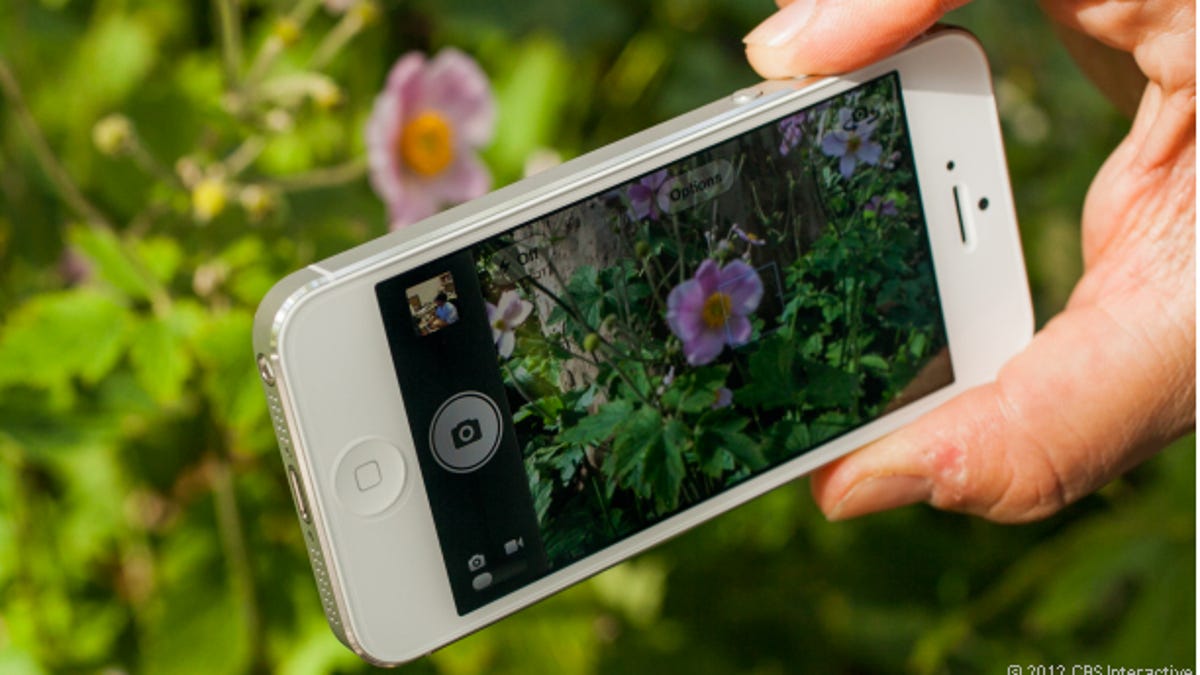Apple loses bid to nix patent troll's 'screen rotation' suit
Court rules that patent lawsuit against Apple can go to a jury. At issue: whether the iPhone's screen rotation and call rejection features violate patents originally held by Sony and Nokia.

You might think it's obvious that when an iPhone or similar device is placed on its side, what's displayed on the screen should rotate as well.
But CNET has learned that a federal judge in Delaware yesterday rejected Apple's attempt to throw out a lawsuit over screen rotation brought by a holding company, MobileMedia Ideas, which has been dubbed "a classic patent troll."
U.S. District Judge Sue Robinson said the suit could proceed, ruling that the question of whether iOS devices infringed on the patent, No. 6,441,828, was "suitable for determination by a jury."
MobileMedia Ideas is an unusual company: it's jointly owned by Apple competitors Sony and Nokia, which make smartphones, and a Denver-based company called MPEG LA that licenses patents for the MPEG-2 and MPEG-4 standard. The U.S. Department of Justice has reportedly been probing MPEG LA over antitrust violations, and it was the target of an antitrust lawsuit, now settled, in a Los Angeles court. MobileMedia and MPEG LA share the same chief executive, Larry Horn.
MobileMedia boasts a hoard of more than 300 patents, drawn largely from the filing cabinets of Sony and Nokia, that it says can be triggered by makers of "smartphones, mobile phones, and other portable devices including personal computers, laptops, netbooks, personal media players, e-book readers, cameras, and handheld game consoles" -- in other words, just about any company making just about any electronic device. The screen rotation patent was originally granted to Sony.
That innovative, trollish corporate structure gives Sony and Nokia a layer of insulation from countersuits by Apple and other targets MobileMedia might choose. If Sony had sued directly over screen rotation, it might have been hit by immediate counterclaims over whether products such as its Vaio laptops or Xperia mobile devices violate Cupertino's sizable patent stash (which was Samsung's strategy when Apple named it as a defendant).
Sony's screen rotation patent filed in 1999 doesn't seem to anticipate iOS devices, which use internal sensors to detect movement and dispatch events to applications, which can take appropriate actions. The patent says, for instance, "by pressing the rotate button a maximum of three times for one image, the user can rotate the image clockwise."
Apple argues that the Sony patent was invalid because of prior art, including previously issued patent No. 6,563,535, which deals with displaying images right-side-up "regardless of the orientation of the image or the physical orientation" of the device.
MobileMedia filed the lawsuit against Apple in July 2010, alleging that 18 of its patents were violated. Some of the other ones it says Apple infringed include:
- Sony patent No. RE39231, which deals with "call incoming control method" and covers tapping the screen or pressing a button to mute incoming calls or change the volume of incoming calls.
- Nokia patent No. 6,253,075, which deals with "rejecting incoming calls." MobileMedia says the iPhone infringes this patent because, to decline an incoming second call while on a first call, the user can tap "decline" or "ignore."
- Sony patent No. 6,725,155, which deals with transmitting GPS coordinates and "route search conditions" to a remote server, and in return "receiving guidance data transmitted from the server." MobileMedia claims the iPhone's mapping features infringe this patent; Judge Robinson ruled that Apple had not demonstrated "obviousness" so the case can continue.
MobileMedia did not respond to queries from CNET this morning.
A study released in June pegs the cost of patent troll lawsuits -- the authors used the term "nonpracticing entities" -- at $29 billion last year. It concluded that there was little evidence that trolls promote innovation. (A patent troll is generally defined as a company that primarily exists to file lawsuits and doesn't manufacture anything.)
Earlier this week, a federal judge in Wisconsin threw out Apple's patent lawsuit against Motorola Mobility, which is now part of Google. And also this week, a Texas court slapped Apple with $368 million in damages arising from Facetime-related patents owned by VirnetX.
In a complaint with the European Commission early this year, Google blasted Microsoft and Nokia for hiding behind patent trolls in filing lawsuits designed to discourage device makers from using Android. Nokia and Microsoft denied the allegations.

